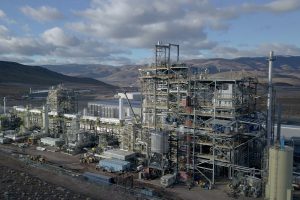Syngas News Roundup
ExxonMobil has awarded the contract for front-end engineering and design (FEED) of what it describes as the world’s largest low-carbon hydrogen production facility. A final investment decision for the project is expected by 2024, subject to stakeholder support, regulatory permitting, and market conditions. Technip Energies will conduct the FEED for the Baytown integrated complex, which will produce up to 1 bcf/d of low carbon hydrogen, while capturing more than 98% of associated CO2 emissions, totalling around 7 million tCO2 e/year. Offtake agreements are reportedly under discussion with third party customers. Start-up is planned for 2027-2028. The carbon capture and storage network being developed for the project will also be made available for use by third-party CO2 emitters in the area in support of their decarbonisation efforts.







